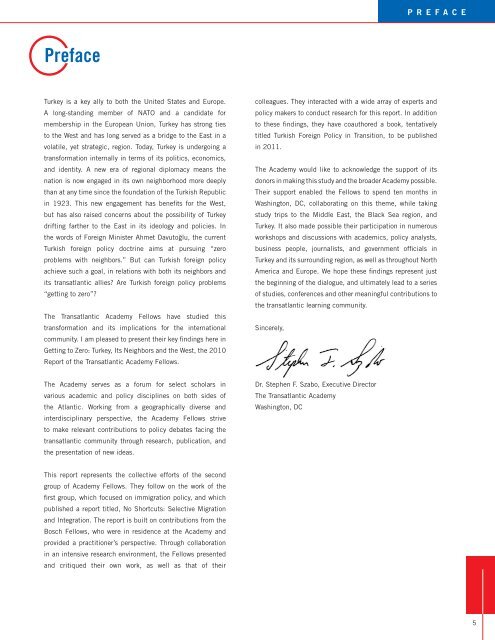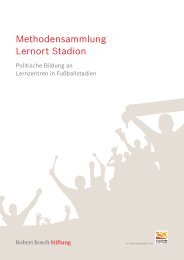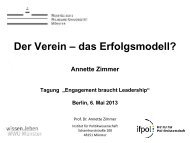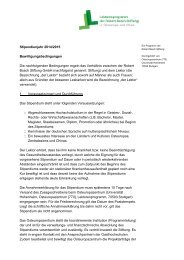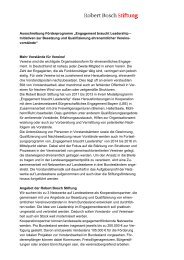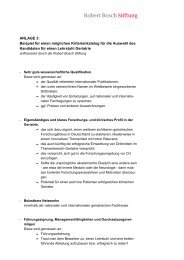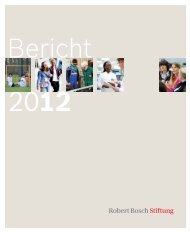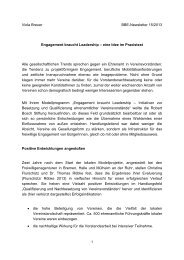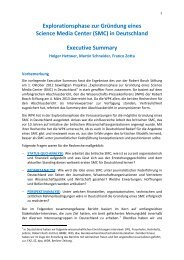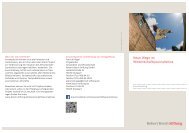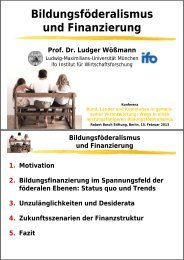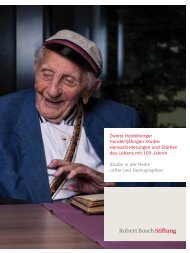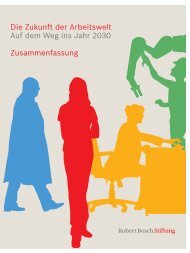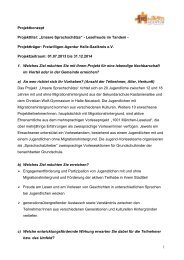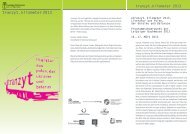Turkey, Its Neighbors and the West - Robert Bosch Stiftung
Turkey, Its Neighbors and the West - Robert Bosch Stiftung
Turkey, Its Neighbors and the West - Robert Bosch Stiftung
Create successful ePaper yourself
Turn your PDF publications into a flip-book with our unique Google optimized e-Paper software.
Preface<br />
<strong>Turkey</strong> is a key ally to both <strong>the</strong> united states <strong>and</strong> europe.<br />
a long-st<strong>and</strong>ing member of naTo <strong>and</strong> a c<strong>and</strong>idate for<br />
membership in <strong>the</strong> european union, <strong>Turkey</strong> has strong ties<br />
to <strong>the</strong> <strong>West</strong> <strong>and</strong> has long served as a bridge to <strong>the</strong> east in a<br />
volatile, yet strategic, region. Today, <strong>Turkey</strong> is undergoing a<br />
transformation internally in terms of its politics, economics,<br />
<strong>and</strong> identity. a new era of regional diplomacy means <strong>the</strong><br />
nation is now engaged in its own neighborhood more deeply<br />
than at any time since <strong>the</strong> foundation of <strong>the</strong> Turkish republic<br />
in 1923. This new engagement has benefits for <strong>the</strong> <strong>West</strong>,<br />
but has also raised concerns about <strong>the</strong> possibility of <strong>Turkey</strong><br />
drifting far<strong>the</strong>r to <strong>the</strong> east in its ideology <strong>and</strong> policies. In<br />
<strong>the</strong> words of foreign Minister ahmet Davuto ˘glu, <strong>the</strong> current<br />
Turkish foreign policy doctrine aims at pursuing “zero<br />
problems with neighbors.” but can Turkish foreign policy<br />
achieve such a goal, in relations with both its neighbors <strong>and</strong><br />
its transatlantic allies? are Turkish foreign policy problems<br />
“getting to zero”?<br />
The Transatlantic academy fellows have studied this<br />
transformation <strong>and</strong> its implications for <strong>the</strong> international<br />
community. I am pleased to present <strong>the</strong>ir key findings here in<br />
Getting to Zero: <strong>Turkey</strong>, <strong>Its</strong> neighbors <strong>and</strong> <strong>the</strong> <strong>West</strong>, <strong>the</strong> 2010<br />
report of <strong>the</strong> Transatlantic academy fellows.<br />
The academy serves as a forum for select scholars in<br />
various academic <strong>and</strong> policy disciplines on both sides of<br />
<strong>the</strong> atlantic. Working from a geographically diverse <strong>and</strong><br />
interdisciplinary perspective, <strong>the</strong> academy fellows strive<br />
to make relevant contributions to policy debates facing <strong>the</strong><br />
transatlantic community through research, publication, <strong>and</strong><br />
<strong>the</strong> presentation of new ideas.<br />
This report represents <strong>the</strong> collective efforts of <strong>the</strong> second<br />
group of academy fellows. They follow on <strong>the</strong> work of <strong>the</strong><br />
first group, which focused on immigration policy, <strong>and</strong> which<br />
published a report titled, no shortcuts: selective Migration<br />
<strong>and</strong> Integration. The report is built on contributions from <strong>the</strong><br />
bosch fellows, who were in residence at <strong>the</strong> academy <strong>and</strong><br />
provided a practitioner’s perspective. Through collaboration<br />
in an intensive research environment, <strong>the</strong> fellows presented<br />
<strong>and</strong> critiqued <strong>the</strong>ir own work, as well as that of <strong>the</strong>ir<br />
colleagues. They interacted with a wide array of experts <strong>and</strong><br />
policy makers to conduct research for this report. In addition<br />
to <strong>the</strong>se findings, <strong>the</strong>y have coauthored a book, tentatively<br />
titled Turkish foreign policy in Transition, to be published<br />
in 2011.<br />
The academy would like to acknowledge <strong>the</strong> support of its<br />
donors in making this study <strong>and</strong> <strong>the</strong> broader academy possible.<br />
Their support enabled <strong>the</strong> fellows to spend ten months in<br />
Washington, DC, collaborating on this <strong>the</strong>me, while taking<br />
study trips to <strong>the</strong> Middle east, <strong>the</strong> black sea region, <strong>and</strong><br />
<strong>Turkey</strong>. It also made possible <strong>the</strong>ir participation in numerous<br />
workshops <strong>and</strong> discussions with academics, policy analysts,<br />
business people, journalists, <strong>and</strong> government officials in<br />
<strong>Turkey</strong> <strong>and</strong> its surrounding region, as well as throughout north<br />
america <strong>and</strong> europe. We hope <strong>the</strong>se findings represent just<br />
<strong>the</strong> beginning of <strong>the</strong> dialogue, <strong>and</strong> ultimately lead to a series<br />
of studies, conferences <strong>and</strong> o<strong>the</strong>r meaningful contributions to<br />
<strong>the</strong> transatlantic learning community.<br />
sincerely,<br />
Dr. stephen f. szabo, executive Director<br />
The Transatlantic academy<br />
Washington, DC<br />
P R E F A C E<br />
5


